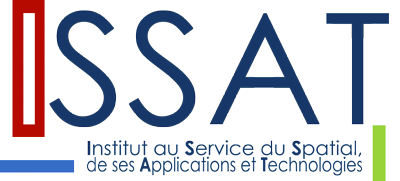aller au menu | aller au contenu


Space applications
training courses
Courses
Master Gestion territoriale du développement durable
- Organisation : Université Bordeaux Montaigne
- Way of training : Initial education - Life-long learning - Sandwich/Apprenticeship training
- Language(s): French
- Place: (French Regions: Nouvelle-Aquitaine)
- Prepared diploma/grade/title: Master or DNM: French National Master Degree
- 1st required level : French baccalauréat + 3
- This training is included in RNCP / RS
Course Details
Objectives : The master's degree in Territorial Management of Sustainable Development aims to train experts in sustainable development by emphasizing their ability to adapt in the context of transition: democratic transition, territorial transition, ecological transition.
It is about being able to assess what sustainable development can induce as a change in the practices of organizations, from the Agenda 21 of a community to the CSR policy of a large company.
It seeks to respond to requests from partner organizations for hybrid operational-research profiles much more than exclusively technical profiles.
The field of experimentation and innovation is largely privileged by an internship designed as a 6-month sequence, integrated into a much longer collaboration of the course with organizations such as the Regional Council of Aquitaine for example, which recruits each year of interns on a multi-year experimental program dealing with the evaluation of public policies and the participatory question.
The internship (4 to 6 months in M1, 6 months in M2) is constructed as an academic contribution to a problem posed by an organization, the student ensuring the articulation between the two worlds.
Associated research team: Passages, Joint University / CNRS Research Unit https://www.passages.cnrs.fr/
Concerned research axes (in particular transition workshop of the laboratory project): The notion of transition is carried in its most common sense to respond to current environmental and social challenges by avoiding a simple adaptation to a changing context.
We consider an ecological, energy, urban, democratic transition, etc.
The notion takes note of the fact that the logics on which the present is based must be profoundly transformed in order to move towards a different future, the definition of which is debated.
In the diagnoses of the present, the imagined future states and the means to reach them, the notion of transition necessarily implies differentiated political projects according to the actors concerned.
Degree Level (EU) : 7 - (EQC level or equivalent)
Acquired skills during the training : The GTDD master's degree gives students the theoretical and methodological knowledge necessary for the production of situational analyzes.
The knowledge required ranges from institutional frameworks for action to methodological and technical analysis tools.
The critical approach is only possible on the basis of these achievements, teaching sees it as a means of adapting action in a situation of transition or uncertainty.
Skills on the territorial register: Diagnosis of territory / system of actors / animation and operation of participatory devices / prospective / written and oral expression.
Skills in digital and web geography: Bibliographies / databases / cartography / GIS / Participatory geoweb • Internet visibility of the master's work (http://master-gtdd.com/).
Targeted careers : The transversality of the themes addressed during this training testifies to the diversity of the possible outlets.
This concerns all the professions relating to the management of sustainable development projects and actions, in France or abroad, whether within local authorities, State services, the private sector (offices of studies, companies), NGOs or associations.
Consequently, the outlets are diversified and in constant renewal according to the emerging needs in this field.
Students from previous graduates have found employment opportunities related to Agenda 21, territorial climate plans, city policy, mobility and other sectors as needs change.
Duration and terms : 2 years
Partnerships with national organisations : UMR PASSAGES
Dedicated web site : https://www.u-bordeaux-montaigne.fr/fr/formations/offre-de-formation-2022-2026/master-XB/geographie-GEO.6/master-gestion-territoriale-du-developpement-durable-KQQPI56D.html
Applications
- Health and Societal challenges (E-health, tele-epidemiology, space medicine; Risk management, security, education, tourism...)
- Environment and Land Management (Environmental protection, agriculture, biodiversity, climate changes; Resources, land-use planning, infrastructures)
Space Technologies and Scientific Disciplines
- Earth observation (Remote sensing, GIS, geomatics)